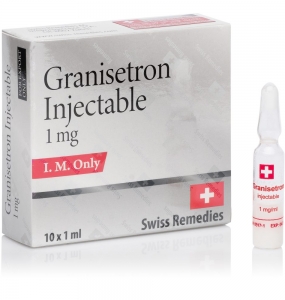


Research indicates that granisetron may address Alzheimer’s disease by targeting key pathological features such as blood-brain barrier dysfunction, amyloid-β accumulation, and calcium imbalance. Granisetron’s ability to block 5-HT3 receptors reduces excitotoxicity and restores calcium homeostasis. In animal studies, it improved BBB integrity, lowered neuroinflammation, and normalized signaling pathways disrupted by Aβ. This multifaceted action supports its potential repurposing for AD treatment.
Al Rihani, S.B., Lan, R.S., & Kaddoumi, A. (2019) 'Granisetron alleviates Alzheimer’s disease pathology in TgSwDI mice through calmodulin-dependent protein kinase II/cAMP-response element binding protein pathway', Journal of Alzheimer’s Disease.
Disclaimer: Information provided it this page is for general information only and does not substitute for professional medical advice.
For detailed information about Granisetron 1 AMPULES by Swiss Remedies, consult with your doctor or healthcare professional.


Al Rihani, S.B., Lan, R.S., & Kaddoumi, A. (2019) 'Granisetron alleviates Alzheimer’s disease pathology in TgSwDI mice through calmodulin-dependent protein kinase II/cAMP-response element binding protein pathway', Journal of Alzheimer’s Disease.

Al Rihani, S.B., Lan, R.S., & Kaddoumi, A. (2019) 'Granisetron alleviates Alzheimer’s disease pathology in TgSwDI mice through calmodulin-dependent protein kinase II/cAMP-response element binding protein pathway', Journal of Alzheimer’s Disease.

Al Rihani, S.B., Lan, R.S., & Kaddoumi, A. (2019) 'Granisetron alleviates Alzheimer’s disease pathology in TgSwDI mice through calmodulin-dependent protein kinase II/cAMP-response element binding protein pathway', Journal of Alzheimer’s Disease.